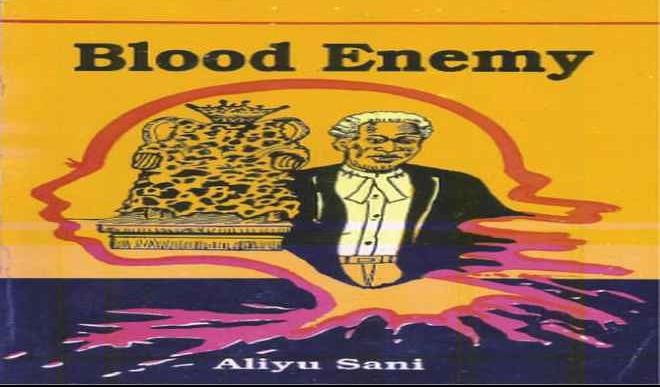A review of Aliyu Sani’s ‘Blood Enemy’
Title: Blood Enemy Author: Aliyu Sani Publisher: A.S. Publishers Pages: 93 Year of Publication: 1997 Reviewer: Dickson Salami Adama In ‘Blood Enemy’ the author lends his voice to the global outcry against the Acquired Immune Deficiency Syndrome (AIDS). He was spurred by the people’s vulnerability, hopelessness, fear and anxiety and inability […]


Title: Blood Enemy
Author: Aliyu Sani
Publisher: A.S. Publishers
Pages: 93
Year of Publication: 1997
Reviewer: Dickson Salami Adama
In ‘Blood Enemy’ the author lends his voice to the global outcry against the Acquired Immune Deficiency Syndrome (AIDS). He was spurred by the people’s vulnerability, hopelessness, fear and anxiety and inability to tackle the dreaded and incurable catastrophic disease, AIDS.
The setting of the book and the cultural angle taken by the author is captivating and makes it easy for people to follow and get the message passed across. The author intimates the society on AIDS and its attendant effect, especially at a time when it was ravaging nations and communities alike and the people, including the government, were at a loss as to how to tackle the menace.
Unlike the present time where HIV and AIDS is being tackled in several effective ways and the victims are being treated and manage to live for longer years, it used to be a ‘death sentence’. It was expensive to manage and once infected a person’s life was automatically in danger.
The author reveals in his book that the disease is no respecter of persons or position. So, through fiction, the story revolves around a prince called Ado, who is heir to the royal seat of Ejeh of Ankpa. Ado is also a prominent lawyer who is highly respected, but he has a major flaw, his lust for women and his unwillingness to heed to advice and warning. In the end, he is infected with the HIV virus and pays the ultimate price, death.
Ado’s eventual death isn’t the author’s strongest message in this book, but the painful stigmatization that follows. As soon as news went round, people avoided him like a plague. Even when he lost his father, the king, none of his employees and members of the Nigeria Bar Association (NBA) came to condole with him. Worse still, the king makers found him unworthy of the throne due to his HIV status, even though he is the heir apparent.
In an earlier review of the book in 1997, both the Joint United Nations Programme on HIV/AIDS (UNAIDS) and renowned author, Late Cyprian Ekwensi, said the book gives a meaningful insight into the HIV/AIDS situation in the Nigerian context.
UNAIDS’s then Country Programme Advisor, Dr. Ofosu Barko, wrote: “’Blood Enemy’ tells the story of HIV and AIDS in such a cultural context that every Nigerian can identify with. It addresses the issue of HIV/AIDS confronting humanity, and some of the challenges facing Nigeria is her response to the epidemic. Aliyu Sani by his book has made a very important contribution to the AIDS efforts in Nigeria and beyond. ‘Blood Enemy’ should be made widely available to young people and the reading public. The book should also be made available throughout the educational system, by the federal government, with the support of parastatal organizations and the private sector.”
In his own review, Cyprian Ekwensi wrote: “’Blood Enemy’ creates that essential awareness about HIV/AIDS. It is a book that should not just be read and cast aside, but passed on to more readers. This is a task for education authorities and health workers at all levels, to whom the book is also hereby recommended as a support for their uphill task of bringing home the horrible realities of AIDS.”
So, by and large, posterity will always remember the author for lending his voice against the deadly virus which was then a death sentence but now a manageable and conditioned disease.
